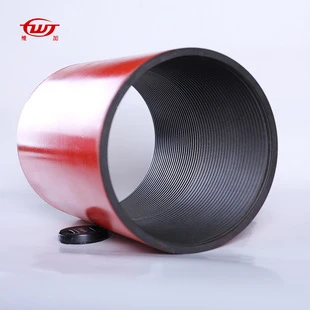- Afrikaans
- Albanian
- Amharic
- Arabic
- Armenian
- Azerbaijani
- Basque
- Belarusian
- Bengali
- Bosnian
- Bulgarian
- Catalan
- Cebuano
- Corsican
- Croatian
- Czech
- Danish
- Dutch
- English
- Esperanto
- Estonian
- Finnish
- French
- Frisian
- Galician
- Georgian
- German
- Greek
- Gujarati
- Haitian Creole
- hausa
- hawaiian
- Hebrew
- Hindi
- Miao
- Hungarian
- Icelandic
- igbo
- Indonesian
- irish
- Italian
- Japanese
- Javanese
- Kannada
- kazakh
- Khmer
- Rwandese
- Korean
- Kurdish
- Kyrgyz
- Lao
- Latin
- Latvian
- Lithuanian
- Luxembourgish
- Macedonian
- Malgashi
- Malay
- Malayalam
- Maltese
- Maori
- Marathi
- Mongolian
- Myanmar
- Nepali
- Norwegian
- Norwegian
- Occitan
- Pashto
- Persian
- Polish
- Portuguese
- Punjabi
- Romanian
- Russian
- Samoan
- Scottish Gaelic
- Serbian
- Sesotho
- Shona
- Sindhi
- Sinhala
- Slovak
- Slovenian
- Somali
- Spanish
- Sundanese
- Swahili
- Swedish
- Tagalog
- Tajik
- Tamil
- Tatar
- Telugu
- Thai
- Turkish
- Turkmen
- Ukrainian
- Urdu
- Uighur
- Uzbek
- Vietnamese
- Welsh
- Bantu
- Yiddish
- Yoruba
- Zulu
Casing Collar Solutions for Oil and Gas Industry | Advanced Technology & Reliability
Understanding Casing Collars in Oil and Gas Operations
Casing collars play a crucial role in the oil and gas industry, particularly during the drilling and completion phases of well operations. These mechanical components, often made from durable steel, are designed to create secure connections between different sections of casing. This connection ensures the structural integrity of the wellbore, which is vital for the safety and efficiency of drilling operations.
Casing serves multiple purposes it stabilizes the well, protects freshwater aquifers from contamination, and provides a surface for installing additional equipment such as production tubing and completion assemblies. Casing collars, specifically, function as connectors between casing strings, allowing for easier assembly and disassembly as needed. They can also be critical in various applications, such as in deep-water drilling or unconventional resource extraction, where wellbore integrity is even more challenging to maintain.
One significant advantage of casing collars is their ability to allow for a higher number of joints in a casing string without sacrificing strength or reliability. This feature is particularly important in deep wells, where the pressure and temperature can be extreme. The collar design can vary, with different configurations available to accommodate specific drilling conditions or operational requirements. Some collars even incorporate features like centralizers, which help maintain proper alignment of the casing during installation.
casing collar

Another vital aspect of casing collars is their contribution to the overall safety of drilling operations
. The integrity of the well is paramount to prevent blowouts, which can have catastrophic consequences. By providing robust connections and helping maintain the alignment of the casing, collars reduce the risk of failure and ensure that the drilling operation proceeds smoothly.However, it is essential to consider the materials and manufacturing processes involved in casing collar production. The quality of steel used and the treatment processes can significantly impact the performance of these components. Additionally, it is crucial for operators to be aware of the specific requirements of their drilling environment when selecting casing collars, as different formations and pressure conditions may necessitate unique designs or materials.
In recent years, technological advancements have also influenced the design and production of casing collars. Enhanced engineering techniques have led to lighter, yet stronger, options that can provide the same level of support while reducing the total weight of the casing string. These innovations not only improve the efficiency of drilling operations but also contribute to the sustainability of oil and gas extraction.
In summary, casing collars are indispensable components in the oil and gas industry, ensuring the integrity and stability of wells during drilling and completion operations. Their design and function address the challenges posed by today’s complex drilling environments, making them critical to the success of extraction projects. As technology continues to evolve, so too will the capabilities of casing collars, contributing to safer and more efficient well operations.
-
Tubing Pup Joints: Essential Components for Oil and Gas OperationsNewsJul.10,2025
-
Pup Joints: Essential Components for Reliable Drilling OperationsNewsJul.10,2025
-
Pipe Couplings: Connecting Your World EfficientlyNewsJul.10,2025
-
Mastering Oilfield Operations with Quality Tubing and CasingNewsJul.10,2025
-
High-Quality Casing Couplings for Every NeedNewsJul.10,2025
-
Boost Your Drilling Efficiency with Premium Crossover Tools & Seating NipplesNewsJul.10,2025







